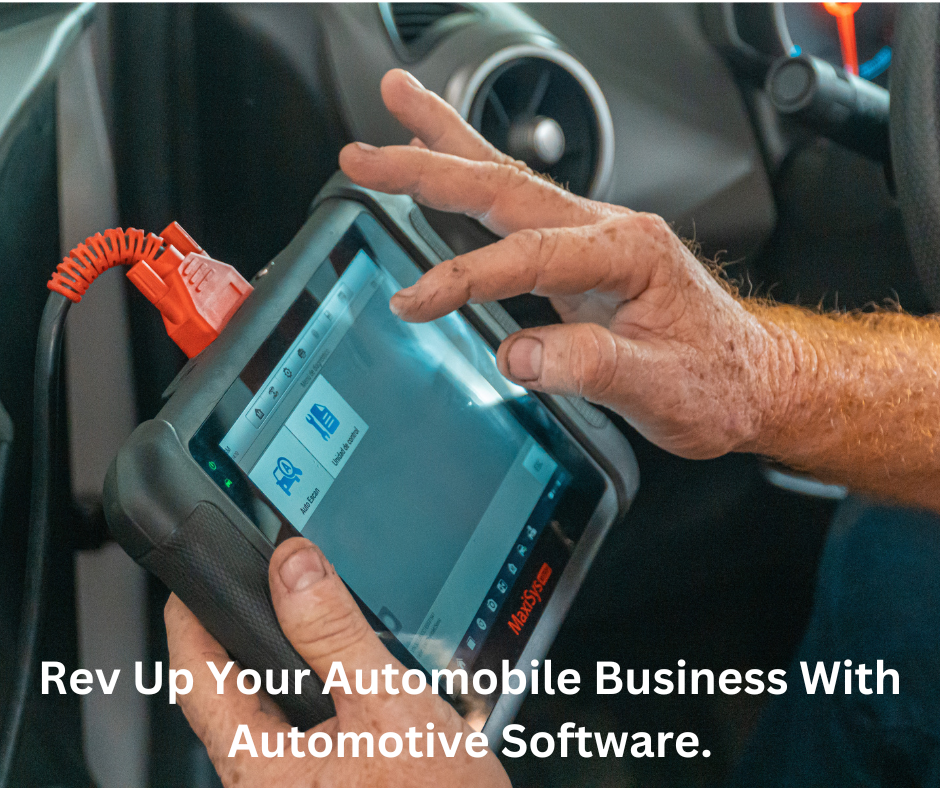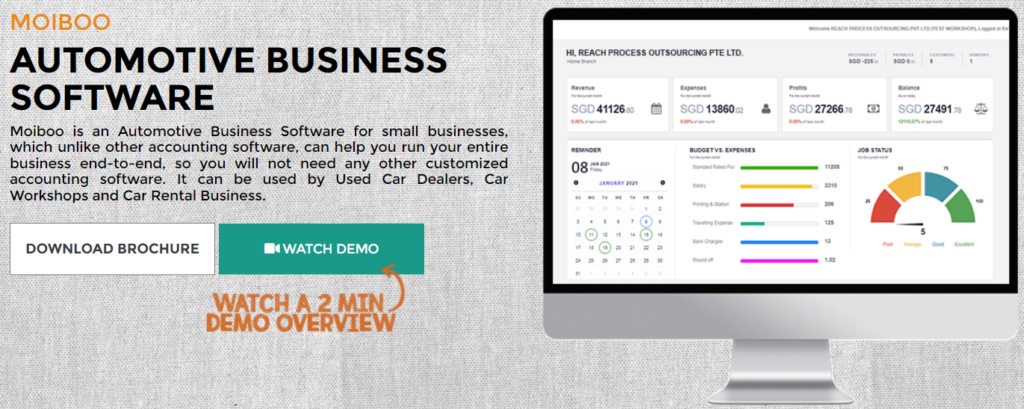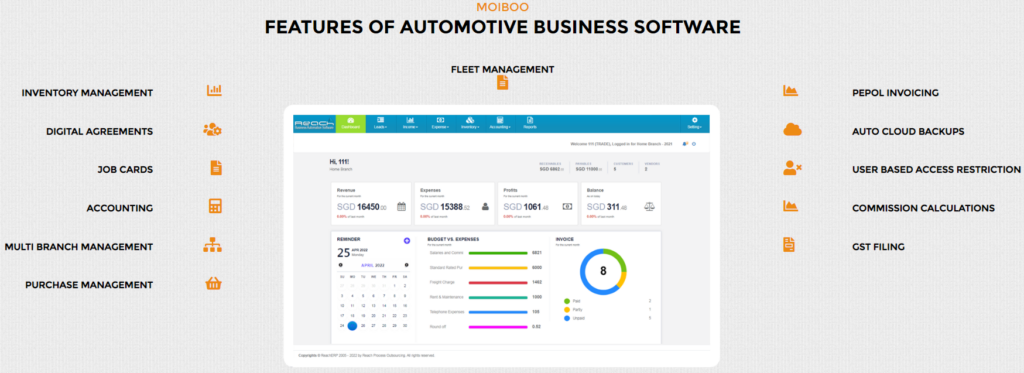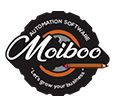Introduction:
In today’s fast-paced world, where technology reigns supreme, businesses need to adapt and leverage the power of software solutions to stay ahead of the competition. The automobile industry is no exception. With the increasing complexity of operations and growing customer demands, automotive businesses must embrace cutting-edge tools to streamline their processes and enhance their overall efficiency.
This is where automotive software comes into play, offering a wide range of benefits that can rev up your automobile business to new heights.

Automotive software:
It is specifically designed to address the unique challenges faced by the automotive industry, ranging from inventory management and sales tracking to customer relationship management (CRM) and marketing automation. Let’s explore the key ways in which this software can transform your automobile business and drive it toward success.
Efficient Inventory Management:
For any automobile business, managing inventory effectively is crucial. Automotive software provides comprehensive inventory management features that allow you to track and monitor your inventory levels in real time.
With the ability to automate inventory updates, you can ensure accurate stock information, avoid stockouts, and streamline the ordering process. This eliminates the risk of overstocking or understocking, optimizing your cash flow and reducing storage costs.
Streamlined Sales and Customer Management:
Sales are the lifeblood of any business, and the automotive industry is no different. Automotive software offers robust sales management tools that enable you to track leads, manage prospects, and close deals more efficiently.
By automating the sales process, you can streamline tasks such as generating quotes, managing invoices, and tracking payments. This not only saves time but also reduces the chances of errors and enhances customer satisfaction.
Additionally, automotive software includes CRM functionalities tailored specifically to the needs of automobile businesses. You can store customer information, track their preferences, and gain valuable insights into their buying behavior. This allows you to provide personalized services, nurture customer relationships, and boost customer loyalty.

Effective Marketing Automation:
In today’s digital age, effective marketing is essential for staying competitive. Automotive software empowers your marketing efforts by offering automation features that streamline marketing campaigns. From targeted email marketing to personalized promotional offers, you can automate various marketing tasks and reach out to your customers with the right message at the right time.
By analyzing customer data and behavior, you can create more targeted and effective marketing strategies that drive sales and increase brand visibility.
Improved After-Sales Service:
The success of an automobile business relies not only on sales but also on providing exceptional after-sales service. Automotive business software provides tools to manage service appointments, track repairs, and maintain a comprehensive service history for each customer.
By automating these processes, you can enhance the efficiency of your service department, reduce turnaround times, and improve customer satisfaction. Moreover, the software can generate reminders for routine maintenance and send notifications to customers, ensuring their vehicles stay in optimal condition and encouraging repeat business.
Enhanced Analytics and Reporting:
To make informed business decisions, you need access to accurate and timely data. Automotive business software offers powerful analytics and reporting capabilities that provide insights into various aspects of your business.
You can generate detailed reports on sales performance, inventory levels, customer trends, and more. These reports help you identify opportunities for growth, optimize your operations, and make data-driven decisions that drive profitability.
Seamless Integration and Scalability:
Automotive software is designed to integrate seamlessly with your existing systems and tools. Whether you’re using accounting software, customer support systems, or other applications, automotive business software can be integrated to create a unified and efficient workflow. Additionally, as your business grows, the software can scale with you, accommodating increasing demands and evolving requirements.
Conclusion:
Automotive software offers a multitude of benefits that can transform your automobile business. From efficient inventory management and streamlined sales processes to effective marketing automation and improved after-sales service

When it comes to finding a pre-approved Automotive Software that qualifies for the PSG Grant, there is one solution that stands out: Moiboo Automotive Software. This robust software is specifically designed to automate and streamline your entire business processes, ensuring efficient operations from start to finish.
If you’re looking to experience the numerous benefits that Moiboo offers, we highly recommend requesting a free demo. By clicking here, you can schedule a personalized demo session where you can explore the features and functionalities of the software in detail.
For further details and to schedule your demo, please don’t hesitate to contact our team at +65 9895 1817. We are readily available to assist you and provide all the necessary information you need to make an informed decision.
Take the first step towards optimizing your business operations with Moiboo Automotive Software. Don’t miss out on this opportunity to revolutionize your automobile business with cutting-edge software technology.

FAQS:
Does the automobile industry use ERP?
Yes, the automobile industry widely utilizes Enterprise Resource Planning (ERP) systems to enhance its operations. ERP software offers a comprehensive solution that integrates various aspects of the automotive business, including supply chain management, production planning, inventory control, finance, and customer relationship management.
By implementing an ERP system, automobile companies can streamline their processes, improve efficiency, gain better visibility into their operations, and make informed decisions based on real-time data.
ERP solutions specifically tailored for the automobile industry provide specialized functionalities to address the unique challenges and requirements of the sector, making them an indispensable tool for automotive businesses aiming to stay competitive in today’s dynamic market.
What is ECU software?
ECU software refers to the embedded software that runs on an Electronic Control Unit (ECU) in vehicles. The ECU is a crucial component responsible for controlling and managing various functions within the vehicle, such as engine management, transmission control, braking systems, and more.
ECU software acts as the brain of the vehicle, interpreting sensor data, executing algorithms, and providing instructions to different systems. It plays a pivotal role in ensuring optimal performance, efficiency, and safety of the vehicle by controlling parameters and responding to changing conditions.
ECU software is constantly evolving and updating to meet the ever-changing demands of modern vehicles and to incorporate new features and advancements in automotive technology.
What is SaaS in the automotive industry?
SaaS (Software as a Service) in the automotive industry refers to the delivery model where automotive software applications and services are provided to businesses on a subscription basis, accessed through the Internet.
Instead of purchasing and maintaining software licenses or infrastructure, automotive businesses can leverage SaaS solutions to access and utilize software applications hosted and managed by a service provider.
SaaS in the automotive industry offers numerous advantages, including cost-effectiveness, scalability, ease of implementation, and continuous updates and support.
It enables automotive businesses to access and leverage specialized software tools for inventory management, CRM, sales, marketing, and other essential functions without the need for significant upfront investments or complex IT infrastructure.
